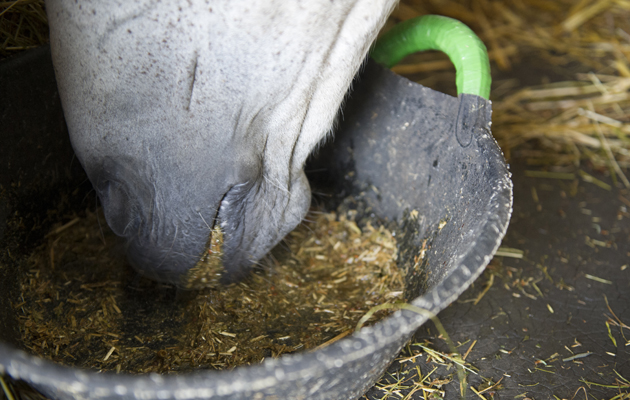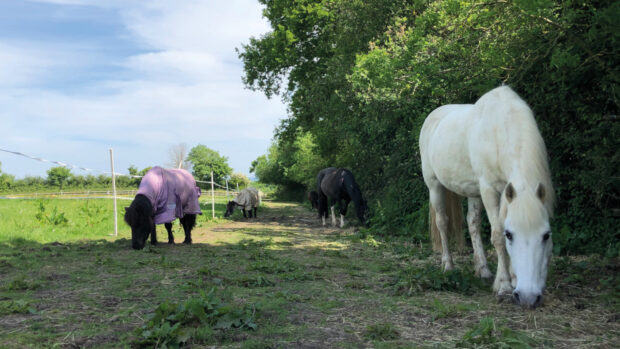Even light exercise could help reduce the risk of horses’ developing laminitis, research has indicated.
In a study of obese equines on a restricted diet, those who were also exercised frequently did not lose more weight – but did enjoy other health benefits.
The research, carried out by Nick Bamford and colleagues at the University of Melbourne’s veterinary and agricultural science faculty, involved 24 equines.
All the horses and ponies were fed the same diet, of restricted hay, no grazing, alfalfa chaff, soya bean meal and a vitamin and mineral supplement.
One group were not worked, while the others were given 15 minutes of “brisk trot”, with five minutes’ walking before and afterwards, five days per week for 12 weeks.
At the end of the trial, the diet-only group showed a reduction in weight and body condition score. They also showed increased adiponectin, a hormone produced by fat cells, of which low levels are a risk factor for laminitis. They had decreased baseline insulin, high levels of which have been linked to increased laminitis risk.
Equines in the exercised group did not lose more weight, but the most important of the additional benefits seen in these horses was improved insulin sensitivity. Horses and ponies who are more insulin-sensitive need to produce less insulin to control blood sugar, and high levels of insulin and reduced sensitivity are risk factors for laminitis.
Continues below…

Rider told she was too heavy to ride loses two stone to get back on board
‘It was heartbreaking to be told I shouldn’t be riding her at that weight’

Warning as well-meaning owners ‘make horses’ lives a misery’
Over-rugging and rider and horse obesity are among the issues affecting horses in this country, World Horse Welfare has warned

Subscribe to Horse & Hound magazine today – and enjoy unlimited website access all year round
“Reducing calorie intake and feeding a diet low in starch and sugar should be the priority for overweight horses and ponies,” said Spillers’ research and development manager Clare Barfoot RNutr. “But the results of this study suggest that exercise may offer additional health benefits for obese horses and ponies and/or those with equine metabolic syndrome that cannot be achieved by cutting calories and weight loss alone.”
The research is part of Spillers’ ongoing work via the Waltham Equine Studies Group to increase knowledge of equine obesity.
For all the latest news analysis, competition reports, interviews, features and much more, don’t miss Horse & Hound magazine, on sale every Thursday.




